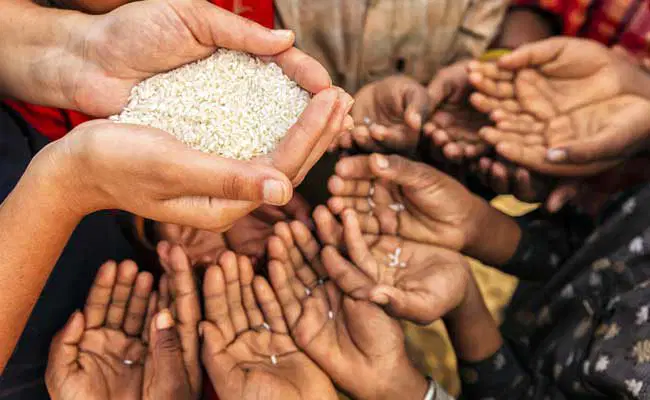News
2025 Hunger Crisis To Affect 133.5m Nigerians – Report

As food scarcity intensifies in Nigeria, the recently released Cadre Harmonisé report on food and nutrition insecurity indicates that 133.5 million Nigerians could be affected by a hunger crisis in 2025.
According to a statement issued Thursday by the Food and Agriculture Organization (FAO), the report, led by the Government of Nigeria with support from partners, reveals a worsening food security situation.
The report anticipates that 33.1 million people will face high levels of food insecurity during the 2025 lean season (June-August), marking a troubling increase of 7 million people compared to the same period last year. This spike is attributed to economic hardship, inflation, climate change impacts, and ongoing violence in the northeastern states.
The statement highlighted, “Nationally, the number of people facing Emergency levels (Phase 4) of food insecurity is projected to rise. Although no populations are classified as Catastrophe (Phase 5), those in Emergency (Phase 4) are expected to increase from 1 million in the peak of the 2024 lean season to 1.8 million in 2025—a significant 80 percent rise.”
The report also warns that approximately 5.4 million children and nearly 800,000 pregnant and breastfeeding women are at risk of acute malnutrition, particularly in Borno, Adamawa, and Yobe in the northeast, as well as Sokoto, Katsina, and Zamfara in the northwest. Of these, an estimated 1.8 million children could face Severe Acute Malnutrition (SAM) and require urgent treatment.
The FAO emphasized that inflation, which reached 40.9 percent for food items and 34.2 percent overall in June 2024, along with economic challenges and conflict, are key drivers of this food insecurity.
During the report’s presentation, Dr. Temitope Fashedemi, Permanent Secretary of the Federal Ministry of Agriculture and Food Security, represented by Dr. Nuhu Kilishi Mohammed, Director of Nutrition and Food Security, stressed the importance of using the report’s findings to guide food and nutrition security interventions across federal agencies, humanitarian organizations, and other partners in Nigeria.
FAO Representative ad interim to Nigeria and ECOWAS, Dominique Koffy Kouacou, reiterated FAO’s commitment to supporting Nigeria in tackling food insecurity: “FAO, alongside our partners, is committed to implementing sustainable solutions that address the underlying causes of food insecurity and malnutrition. By improving agri-food systems, we aim to meet immediate needs while building lasting progress.”
David Stevenson, Country Director for the World Food Programme (WFP), highlighted the urgency of addressing the hunger crisis exacerbated by conflict in the northeast. “Restoring peace in the northeast is essential to unlocking its potential as the food basket of Nigeria,” Stevenson stated.
UNICEF’s Country Representative, Ms. Cristian Munduate, underscored the crisis’ impact on children, who face severe physical, cognitive, and potentially fatal consequences. “Ensuring every child’s right to adequate food and nutrition is our moral responsibility,” Munduate said.
The United Nations called on the Nigerian government, donors, and other stakeholders to allocate resources and take immediate action to prevent a looming food and nutrition disaster, emphasizing the necessity of multi-sectoral support across the country.
-

 News4 days ago
News4 days agoInsecurity: Kogi Schools Resume On Monday
-

 Opinion4 days ago
Opinion4 days agoDon’t Pull the Plug: Why Nigerians Are Pleading for the U.S. to Extend Its Police Training Program — and Why It Must Synergize With New Military Arrivals
-

 Crime3 days ago
Crime3 days agoVigilante Reportedly Shoots Colleague Dead In Plateau
-

 Crime5 days ago
Crime5 days agoPolice Arrest Two Over Murder Of 62-Year-Old Woman In Oyo


